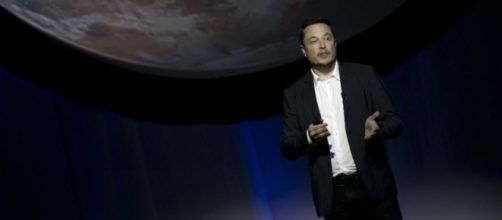According to Elon Musk, he was approached by two private individuals to find out if he was willing to send them on a special week-long cruise. Said cruise would take the two individuals up into space, around the moon (without actually landing), and then head back home to Earth.
According to a report by The Verge, this would be a distance of around 300,000 to 400,000 miles. If SpaceX is successful in this feat, this would make those space tourists the first humans to head that far out into space for over 40 years.
The way Musk explained the journey is that the spacecraft involved would do a long loop around the moon.
Reportedly the two people involved would spend a week in one of the SpaceX Dragon 2 capsules, which will be launched into space using a Falcon Heavy rocket.
SpaceX’s space tourists would be all alone up there
Musk continued by saying that the trip would be fully automated, but that the space tourists would undergo extensive training for emergencies that may crop up while in space. He didn’t mention just how much the trip would cost the two individuals but did say it would be a little more than what it costs to send a crewed mission to the International Space Station.
SpaceX CEO Elon Musk announces company will fly two tourists around the moon next year. https://t.co/nj47mhdIvN pic.twitter.com/bTFBl2jwkt
— CNN Breaking News (@cnnbrk) February 27, 2017
Bear in mind that the Falcon Heavy rocket alone has a price tag of $90 million, so it won’t be cheap.
The Verge did mention that just one ticket on a Russian Soyuz rocket had cost NASA around $80 million. Musk said the two travelers wish to remain anonymous for now, but he did say they know each other and they obviously have the money for the trip.
Some skepticism Elon Musk and SpaceX won’t make the deadline
The New York Times quotes Mary Lynne Dittmar, who is executive director of the Coalition for Deep Space Exploration, as saying SpaceX does have the technical capabilities. However, she added that doing things without schedules is not a strong point for SpaceX. Dittmar said the Dragon 2 capsule and Falcon Heavy rocket are both behind schedule and have not yet flown.
Elon Musk: First tourist trip around the moon planned for 2018 https://t.co/H7SXWhKEs5 pic.twitter.com/pYTi48lOPL
— Al Jazeera News (@AJENews) February 28, 2017
Dittman also said the idea of flying two space tourists using an automated system strikes her as risky. She pointed to the fact that a Dragon capsule with no crew, set to take cargo to the ISS, had to abort it mission due to a glitch. However, it did successfully arrive the next day.

